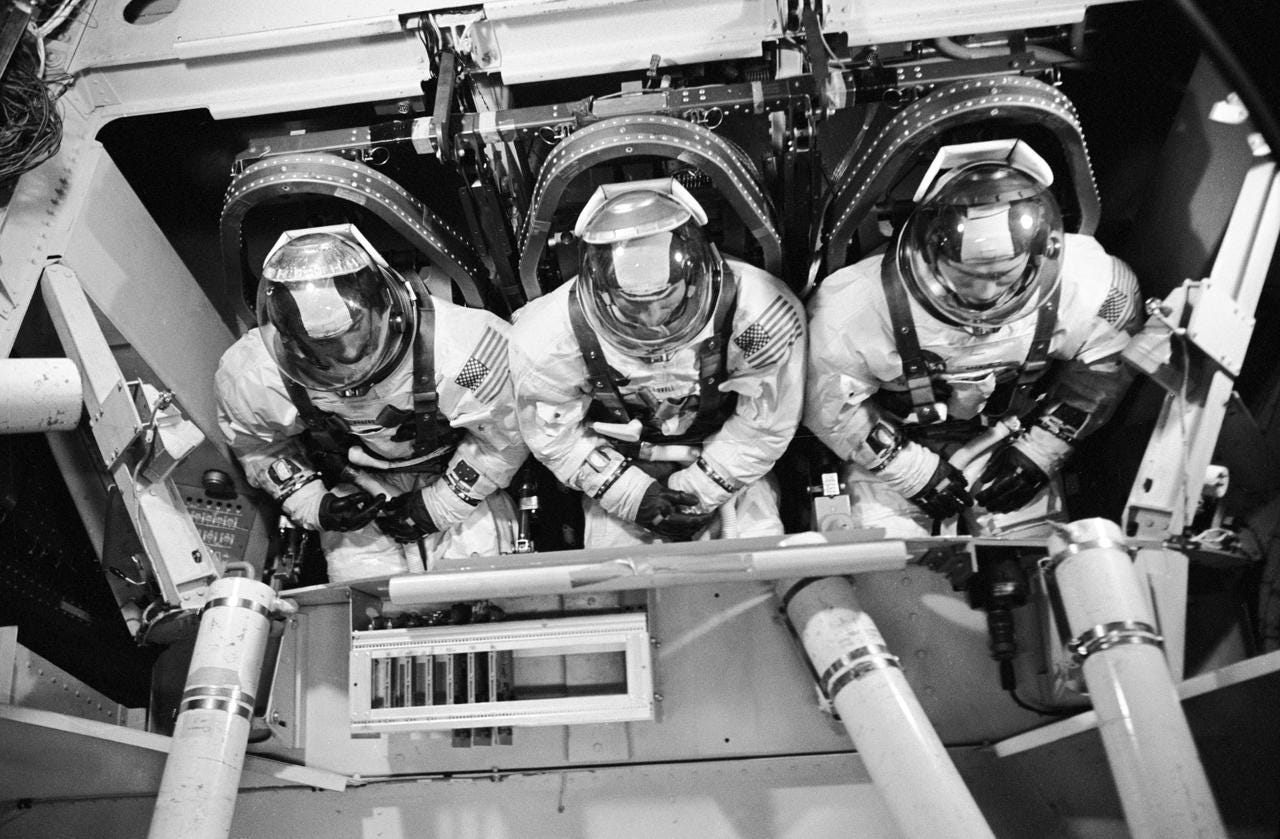JOHN: We're very pleased to travel to the moon in time with Bob Zimmerman, the author of Genesis: The Story of Apollo 8.
Christmas 1968. Christmas 2023, 55 years later. The subtitle tells the story: the first manned flight to another world.
Bob, a very good evening to you. Thank you for joining. And 55 years ago, the expectation at NASA was, this mission had a 50/50 chance of success. How did they arrive at that number, Bob? What does that mean for NASA's ability to take risks 55 years ago?
ROBERT: It's actually a remarkable thing. That 50/50 percentage was a number that was quoted to the wife of Frank Borman, Susan Borman, when she was concerned about this mission. She was convinced her husband was going to die. They used that number to try to reassure her, to make her feel less scared about the mission, because she really was convinced he was going to die in lunar orbit.

Where they got that number, you know, it's kind of — these kind of numbers are kind of off the hat. They're guesswork. What they knew undeniably was the mission itself was incredibly risky.
The Saturn 5 rocket, which they were going to fly on, had only flown twice before unmanned. And on the previous test launch, it had had serious problems. One of the engines had cut off early, they had a fire. There were vibration problems in the first stage that actually damaged the first stage — this is called “pogo effect,” a resonance within the stage. That was a problem.
Also, they had never tested the Apollo capsule in lunar orbit. They only had one engine to get to and from the moon. On top of that, this mission would be going without the lunar module. That's one of the reasons they decided to go to the moon. It was originally supposed to test the lunar module in Earth orbit, but the lunar module wasn't ready, and the policy of NASA up until this time had been that no mission would leave Earth orbit without a lunar module, because the lunar module could act as a lifeboat, as it did on Apollo 13. Jim Lovell came back on Apollo 13 because of the lunar module. But Apollo 8 was going to go to the moon without a lunar module.
So, if what happened on Apollo 13 happened on Apollo 8, they would've been dead in five minutes. That would have been it.
Watch the video above for the full interview, or listen to an audio version below:
LINKS:
Genesis: The Story of Apollo 8 by Robert Zimmerman on Amazon
CBS Eye on the World with John Batchelor on YouTube
The John Batchelor Show on Apple Podcasts:










